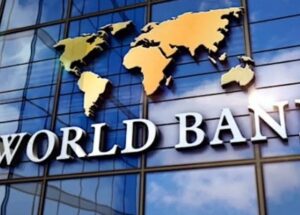World Bank: Over 75% of Rural Nigerians Now Live in Poverty Amid Rising Hardship
World Bank: Over 75% of Rural Nigerians Now Live in Poverty Amid Rising Hardship

The World Bank has revealed that an alarming 75.5% of Nigerians living in rural areas are now below the poverty line, signaling worsening economic conditions and deepening inequality across the country.
This finding was part of the Bank’s April 2025 Poverty and Equity Brief for Nigeria, which highlights growing hardship, persistent underdevelopment, and widening regional disparities.
Although poverty is a nationwide issue, the report stressed that rural areas face the most severe conditions, driven by inflation, insecurity, and limited economic opportunities.
Citing the latest household survey data from Nigeria’s National Bureau of Statistics, the Bank noted that in 2018/19, around 30.9% of Nigerians lived on less than $2.15 per day—below the international extreme poverty line—even before the COVID-19 pandemic.
Regional inequality remains stark, with poverty rates in Nigeria’s northern zones at 46.5%, compared to 13.5% in the southern regions. The World Bank also highlighted the “Prosperity Gap,” a measure showing how far individual incomes fall short of a $25-per-day standard. Nigeria’s gap stands at 10.2, one of the highest among comparable countries.
The report further revealed troubling statistics for the country’s children: 72.5% of Nigerians aged 0–14 live in poverty. Gender disparities were also noted, with 63.9% of women and 63.1% of men living under the $3.65 daily threshold used to assess lower-middle-income poverty.
Education plays a major role in economic outcomes. Nearly 80% of those without formal schooling live in poverty, compared to just 25.4% of those with tertiary education.
Beyond income, the Bank’s analysis of multidimensional poverty exposed widespread deprivation: nearly one-third of Nigerians lack access to basic drinking water, over 45% lack proper sanitation, and nearly 40% are without electricity. Education access is also limited, with many adults not having completed primary school and about 9% of households reporting at least one child not enrolled in school.
The report observed that even before the pandemic, efforts to combat extreme poverty had stagnated, with only marginal improvements recorded since 2010. It added that most urban poor have seen little progress, largely due to a lack of well-paying jobs.
While acknowledging recent policy efforts to stabilize Nigeria’s economy, the World Bank warned that high inflation continues to erode household income, particularly in cities where wages lag behind the rising cost of living.
To address these challenges, the Bank urged swift policy interventions focused on protecting vulnerable populations and promoting job creation through more productive sectors of the economy.
TRENDING SONGS
 The Man Who Sent Money for Two Decades, Only to Return to an Empty Shell
The Man Who Sent Money for Two Decades, Only to Return to an Empty Shell
 See how a young lady was beaten in a village and naked for stealing a goat
See how a young lady was beaten in a village and naked for stealing a goat
 See How Man That Plans to Divorce His Wife, Gets Shocked When She Leaves Him First With Their 5 Kids
See How Man That Plans to Divorce His Wife, Gets Shocked When She Leaves Him First With Their 5 Kids
 Tragic Land Dispute: Man Kills Father in Imo, Pastor Arrested for Rape
Tragic Land Dispute: Man Kills Father in Imo, Pastor Arrested for Rape
 Nigeria Grants Air Tanzania Passage for Direct Flights
Nigeria Grants Air Tanzania Passage for Direct Flights
 KWAM 1 vs KWAM 2: Nigerians Call Out Inconsistent Treatment in Aviation Offense Cases
KWAM 1 vs KWAM 2: Nigerians Call Out Inconsistent Treatment in Aviation Offense Cases
 Nigerian Soldiers Light Up Social Media with Energetic Dance Moves
Nigerian Soldiers Light Up Social Media with Energetic Dance Moves
 Sniper Scandal: See How Chief Ajibade Forces Corn Thief to Drink Poison; Accused Arrested, Monarch Clear Air(VIDEOS)
Sniper Scandal: See How Chief Ajibade Forces Corn Thief to Drink Poison; Accused Arrested, Monarch Clear Air(VIDEOS)
 Woman Finds Out Husband Married Another Wife Through Facebook After Having Three Kids Together
Woman Finds Out Husband Married Another Wife Through Facebook After Having Three Kids Together
 If Anything Goes Wrong During Labor, Save Me—Not the Baby”: Is This a Normal Statement from a Responsible Woman?
If Anything Goes Wrong During Labor, Save Me—Not the Baby”: Is This a Normal Statement from a Responsible Woman?
Share this post with your friends on ![]()













